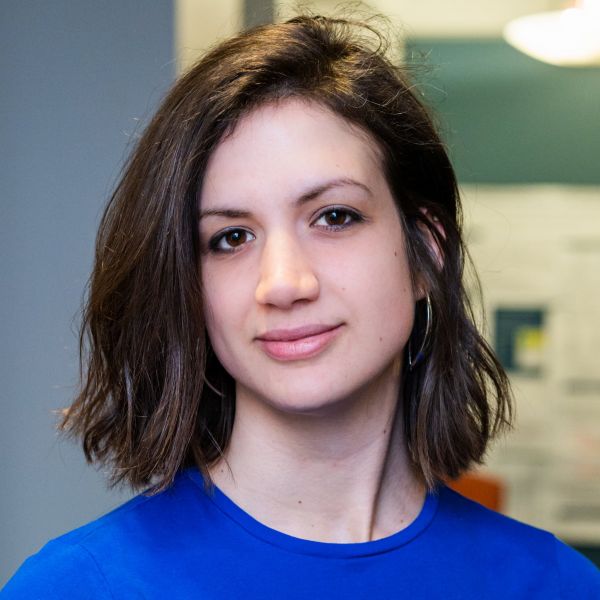Mar 26, 2019
CBIOS Trainee Hillary Koch Awarded NIH Fellowship
Koch's dissertation proposal, "Statistical Methods for Differential Peak Detection in Hi-C Data," was funded upon its first submission to the National Human Genome Research Institute.

Hillary Koch, a Ph.D student in statistics at Penn State and a trainee in the Huck Institutes' Computation, Bioinformatics, and Statistics (CBIOS) training program, has been awarded the NIH Ruth L. Kirschstein Predoctoral Individual National Research Award by the National Human Genome Research Institute for her dissertation research proposal. Titled "Statistical Methods for Differential Peak Detection in Hi-C Data," her research is sponsored by Dr. Qunhua Li and co-sponsored by Dr. Ross Hardison.
"My research is concerned with addressing some computational problems that arise when analyzing large-scale genomic data," explained Koch. "The crux of my proposal is on joint analysis of genomic experiments. Let's say you run an experiment in 25 different cells; the tools to analyze all of this at once are quite limited or require really restrictive assumptions that weaken your model. I proposed a workaround for this, and I gave particular attention in my proposal to Hi-C data, which gives a visualization of how the chromosomes are organized in the nucleus. We have some expertise on that here, and I think that's a popular area right now."
Contributing to the success of Koch's proposal may have been the interdisciplinary support available to her at Penn State and through the CBIOS program, in which Dr. Li and Dr. Hardison are both training faculty.
"The NIH is interested in getting more statisticians involved. I was able, with my sponsor and co-sponsor, to put together a pretty cohesive proposal. Even though I'm a statistician, I have a lot of support from biologists, and I think this is what they're looking for right now."
She foresees other potential applications for her work in the future, and colleagues have already speculated on how it could be applied.
"What I'm working on right now is quite generic. I recently presented this work where a bunch of biologists were looking at it, and people seemed really interested. Some people have shown interest in looking at cell development, taking some kind of chip-seq data, which tells you something about the proteins that are binding in the chromosome, and seeing how these things change throughout cell development."
"It feels limitless."